I'm collaborating on a project with people that use vscode. We write Python code. I asked them to generate the docstrings for their functions, and they used the Autodocstring from vscode. Here is a docstring they came up with:
"""
Subclass ObjectCAD renderToFile method to render the scad file
in renders_dir
Arguments:
file_path {str} -- the destination path for the scad file
Returns:
None
"""
It's supposed to be a Google style docstring.
When I generate a html doc with Sphinx, here is whet I get:
While I should get something like that:
Am I missing an option in sphinx configuration? Or is the Autodocstring broken?


